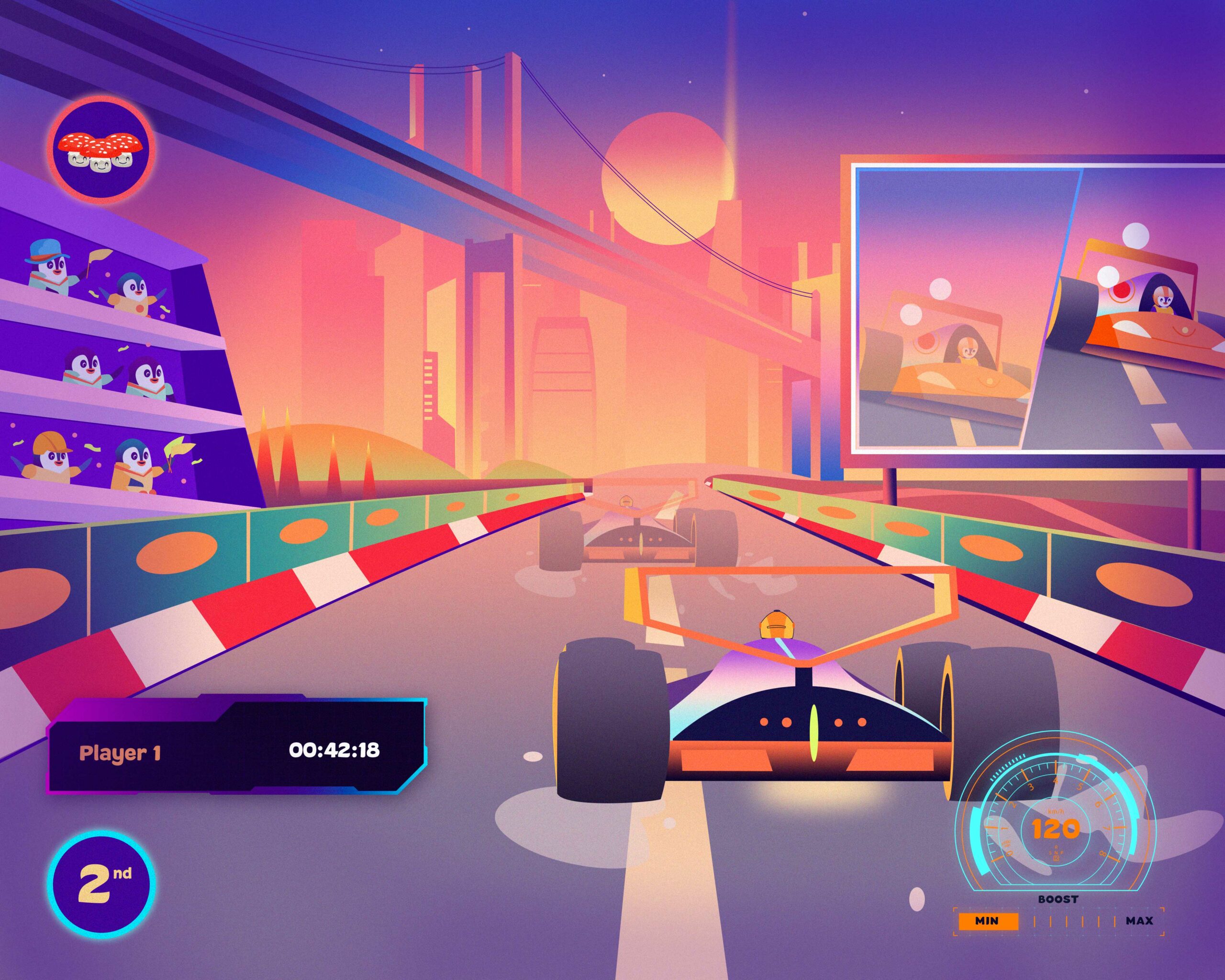In Mario Kart, there’s a time trial mode where you race to get the fastest time. It starts off with you racing a computer generated ghost who is simultaneously racing the track with you. The ghost does the same thing every time. Once you manage to beat the computer ghost, the ghost of you appears racing the track exactly how you raced before (when you first beat the computer’s ghost). You race against your own ghost. When you beat your ghost, your new ghost races the track. It becomes a never ending cycle of racing against your best self.
Early on in a company’s lifecycle, there are countless possibilities. Companies gravitate to what interests them. I love competition; it gives me energy. Competition is also a trap. It’s one thing to be smarter and harder working than your competitors. That’s great, but we all know smart, hard working people who have failed. Companies fail when they spend too much time looking at the competition. They’re afraid of their competition. Anything their competitors do, they copy.
Amazon didn’t look at their competitors for innovation. Amazon did what Amazon thought was best for Amazon. If you’re building from first principles like Amazon, then what your competitors do should be of no consequence. B-teams look to their competitors for validation and even mention competitors on their website. It shows low level thinking to follow others. Amazon was called crazy for never making a profit and doing things like selling Harry Potter books at cost. I had friends a decade back who were short Amazon for years because they thought the company could never actually make a profit.
Hindsight is 20/20 so it’s easy to point to companies like Amazon and say how obvious their business model was to gain market share. What’s hard is to enter an industry and think of how it should look from the ground up. If this industry was run perfectly, what would it look like? It’s helpful to keep in mind that there should be something a bit crazy about your idea. If it’s not viewed as crazy by those in the industry, it’s probably not innovative enough. As Thiel says, tell me something that’s true that nobody agrees with you on.
We love competing at Ender. Yes, we compete against others, but the origin of the word compete means to strive together. We strive together to build something bigger than any individual could create. We went into an industry run in an archaic fashion. We believe there’s hidden value to be unlocked that incumbents aren’t aware of nor even capable of accessing due to their infrastructure and processes.
We often play a thought experiment– imagine a company with our exact team started in Dallas (we’re nearby in Austin). What aggressive move could they do that would scare us? What would they do that would make them go faster and ensure success? In other words, what would our ghost do?
This could be applied to other parts of your life. You’re looking to advance in your professional career; How would your ghost go about it? You’re looking to learn a new skill, e.g. a language or an instrument; How would your ghost go about it? The real question is— why aren’t you doing that right now? Your ghost is beating you.
There’s a parallel universe in which your ghost looks back on who they used to be and sees you as you are now. Your ghost looks down on you… your ghost thinks you’re destined to go down the wrong path to become a loser. Screw your ghost. You’re the same person. You can use the same shortcuts, the same tricks, the same grit. You can do everything they can. So get to it. Chase your ghost.
Sound fun? We’re hiring!
